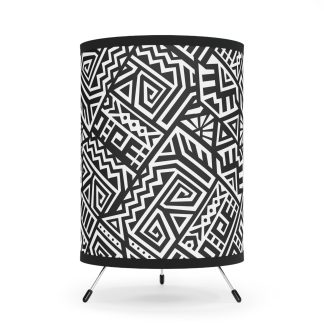
Political turmoil in South Korea continues more than a week after martial law
Political turmoil in South Korea continues more than a week after martial law
Eight days after South Korean President Yoon Suk Yeol’s shocking and brief declaration of martial law, political turmoil in the country continues.
The main opposition party is pushing for a new motion to impeach Yoon after the first attempt failed, and on Wednesday, Yoon’s office blocked a search of his compound.
The president’s…
source
Reviews
0 %
















Залуус үнэхээр мундаг боловсролтой юмаа. Удирдагч нар ч барьж авч хорихгүй агуу орон юмаа. Тусгай хүчнийхэн нь ард түмэнийхээ талд гоё
Why Martial Law Was Essential: Insights from President Yoon’s 12/12 Address
In his address to the nation on December 12, President Yoon explained that martial law was a last-resort measure to address grave threats to South Korea's democratic stability and national security. He cited the following key reasons:
Political Instability and Legislative Paralysis – Highlighted deliberate obstruction by opposition parties, including false accusations and unconstitutional impeachment attempts, which he argued were crippling the government’s ability to function effectively.
Misinformation Campaigns and Public Division – Opposition factions spread misinformation to incite unrest, creating a dangerous level of public division and chaos. He stressed that such actions undermined the principles of democracy.
Safeguarding National Security and Public Order – Warned that escalating unrest could leave the country vulnerable to external threats. Martial law, he argued, was necessary to protect public safety and restore order amid growing instability.
Restoring Constitutional Governance – Clarified that his goal was not to seize power but to uphold the rule of law and preserve South Korea’s constitutional framework in the face of severe challenges.
While acknowledging the extraordinary nature of this measure, President Yoon appealed for understanding, emphasizing that martial law was essential to prevent further erosion of national stability and democratic principles.
Hey south Koreans, why don't you ask North Korea for help? 😊 North/South Korea, Canada all di_k tatorships. You know the democracy has failed when the leader won't leave. Pay attention Canadians.
South Korea has always been politically and geographically at the crossroads of internal conflict and the forefront of the Cold War. It remains so to this day. The country is now a well-known democracy. This democratic system has allowed the inclusion of various ideologies, including communist socialism leaning toward China and North Korea. Yes, there are numerous spies and organizations, some even reportedly operating under government payrolls. These elements and their associated politicians have grown so influential that they pose a threat to the normal functioning of government—an issue not often visible to outsiders. President Yoon, believing that enough is enough, has decided to address these spies and communist supporters before the country plunges into paralysis. However, much of the international media, driven by sentiment or disinterest, either overlooks the reality or misrepresents it. As a result, audiences remain largely unaware of what is truly happening in South Korea today.
The thing is an official of the Korean Federation of Trade Unions (which involved with the Democratic Party of Korea) was sentenced to prison after he was found to have been ordered by North Korea to "make angry and divide people from all walks of life in South Korea." and now this is seen as only a nation's internal division, but what's inside is a political war between China, North Korea and the left wing (DPK) vs. the U.S., Japan and the right wing (PPP). I just want people to know exactly what it is.
I'm conservative South Korean, and I'm writing down here to deliver message to save my country from spoiled traditional American and South Korean media. I’m deeply concerned about the current situation in South Korea. President Yoon Suk-Yeol, who aligns with conservative, pro-American policies, faces significant opposition from the Democratic Party of South Korea, which holds 192 out of 300 seats in Congress.
President Yoon has tried to address the influence of communism from North Korea and China. However, every time he appoints someone to an important position for tackling these issues, the Democratic Party has abused the impeachment process, filing 22 impeachments against President Yoon's appointees just in half year. As a result, the executive branch of South Korea is unable to function properly.
One day before declaring martial law, the Democratic Party opposed expanding the Anti-Communist Act, which currently only targets North Korean spies. President Yoon sought to extend the law to include Russia and China, which seemed like a reasonable move to strengthen ties with the United States.
After the martial law declaration, the Democratic Party in South Korea filed for impeachment in Congress, claiming that President Yoon was trying to foster close relations with the U.S. and Japan while creating hostility toward China, North Korea, and Russia. This clearly signals a close relationship between the Democratic Party and China.
I fear that South Korea is on the brink of collapse, similar to the fate of South Vietnam. If Lee Jae-myung, the most likely successor after President Yoon’s resignation or impeachment, becomes president, democracy in South Korea may be in jeopardy, and the country could be on the side of China and Russia.
Majority of people in South Korea consider these demonstrations as a vibrant expression of democracy. However, from my perspective, it evokes troubling historical precedents, such as the rise of Nazism in the 1930s and the Chinese Red Guards of the 1960s, movements that ultimately led to catastrophic totalitarianism. Plato described such phenomena as 'mob rule,' where governance falls into the hands of an unruly and violent majority.
I believe Europe, the Five Eyes alliance, Japan, and other developed nations must prepare for the potential fallout of South Korea from the first world. South Korea's strategic role is indispensable, particularly in areas such as nuclear powerplant, semiconductors, electronics, ship construction and the defense industry. I sincerely hope this scenario does not come to pass, and I firmly believe that South Korea requires the steadfast support and cooperation of the United States and all other developed countries during this critical period.
On December 3rd, South Korean President Yoon Suk Yeol declared martial law in response to what he described as a parliamentary budget cut terrorism and a series of impeachment attempts that paralyzed state governance. The declaration was also made to facilitate an investigation into alleged election fraud by the National Election Commission.
However, the martial law was peacefully and democratically resolved within six hours, with no injuries or abuses reported among public. Initially, the abrupt declaration of martial law caused public confusion. However, once the public understood the President’s intentions and motivations, many accepted that he exercised his constitutional authority responsibly and temporarily.
In fact, the martial law declaration has brought to light the dominance of the majority party, the Democratic Party of Korea (DPK), and their alleged legislative dictatorship through unchecked control of 190 parliamentary seats. The DPK has faced criticism for what some perceive as ‘legislative terrorism’, including over 22 impeachments requested since President Yoon took office.
As a result, many key government positions, including ministers of the Ministry of the Interior and Safety, the Ministry of National Defense, the Korea Communications Commission, and many others, remain vacant. This ongoing crisis has caused significant administrative and public security voids. Furthermore, the DPK is accused of abusing its majority to shield its leader, Lee Jae-myung, from legal scrutiny despite multiple corruption charges and allegations.
Lee Jae-myung, the DPK leader, is currently on trial for over 12 charges, including major corruption scandals such as the Daejang-dong and Baekhyeon-dong development cases, illegal funding through Seongnam FC, perjury, election fraud, misuse of public funds, and illicit transactions with North Korea. Notably, he has already received a guilty verdict in one of these cases. While some international media may portray him positively, most South Koreans reportedly support his prosecution.
The DPK has also been accused of obstructing governance by slashing next year’s budget for critical areas like special investigative activities by prosecutors and police, the presidential office’s operational budget, and programs supporting vulnerable populations, such as funding for medical residents, underprivileged children, and student scholarships.
Consequently, public sentiment has shifted towards understanding the President’s rationale for the martial law declaration, with growing awareness of allegations of election fraud. Suspicion about the National Election Commission, which has not undergone a single state audit since introducing electronic vote counting machines in 2002, continues to grow.
Citizens are demanding clarity on the legitimacy of past elections, particularly in light of international concerns about election manipulation involving electronic voting machines, made in Korea, in countries like Kyrgyzstan, Congo, Iraq, and Romania, as well as reported interference from foreign actors like the Chinese Communist Party in elections in Australia, Canada, and the U.S.
Despite these concerns, South Korean media largely remains biased toward the Democratic Party, failing to adequately represent public voices. Moreover, online discourse has been stifled, with expressions like "election fraud" censored, and citizens advocating for transparency reportedly being intimidated with accusations of treason.
The opposition party has escalated tensions by accusing President Yoon of "treason" for invoking martial law, a constitutional authority, and has conducted raids on the presidential office on December 11. Critics argue these actions are politically motivated and divisive, exacerbating national instability and undermining liberal democracy, which is the ideological foundation for the Republic of Korea.
Regardless of the charges imposed by South Korea's media and opposition parties, until the Constitutional Court delivers a ruling, Yoon Suk Yeol remains the President of the Republic of Korea, elected by the people through a democratic vote.
We urge international media not to rely solely on South Korea’s partisan domestic press. Instead, we call on you to conduct balanced and fact-based reporting to provide a more accurate representation of the current situation in South Korea.
It's a translator, so please understand that it's a little inaccurate.
I'm Korean and I'm here to tell you the truth because the majority of the left-leaning media incite citizens.
Spies and citizens who have fallen to their propaganda are overflowing everywhere in society, including schools, the military, the presidential office, the Ministry of Education, civic groups, religious groups, and labor unions in Korea.
The Democratic Party has paralyzed the administration of the Republic of Korea by using about two-thirds of its lawmakers secured by fraudulent elections.
Here's what they tried to impeach.
– Minister of Public Administration and Security No. 1
– Inspection number 13
– Chief of the Central District Prosecutors' Office, number one
– Director of the Board of Audit and Inspection No. 1
– Chairman of the Korea Communications Commission No. 5
– Acting Chairman of the Korea Communications Commission No. 1
According to Article 65 (2) of the Constitution, "A person who has been voted for impeachment will be suspended from exercising his/her authority until the impeachment trial."
This martial law is not intended to infringe on the freedom of the people, but to forcibly search and seizure through martial law because it has failed several attempts to seize and search the constitutional body, the Election Commission, and its structure is virtually impossible.
Now, the Yoon Suk Yeol government is trying to protect the world order led by conservatism, liberalism, and the United States
The opposite Democratic Party is a pro-China anti-American force.
As a Korean, Korea is more important to the U.S. economically, geographically, and militarily than Japan, and if Korea falls to the pro-China and leftists, the U.S. influence in East Asia will be further diminished and China's hegemony will accelerate.
Historically, East Asia was peaceful only when China was torn inside and its neighboring countries were strong.
We ask for your full support and support so that Korea does not fall into the hands of China.
Leaks coming out about Trump working together with shareholders involved with Qarden Token
Qarden Token has two of the largest Tesla shareholders already; most likely something is coming
Highly likely there will be partnerships between X or Tesla with Qarden Token
With Elon and Trump now working with Qarden Token is going to absolutely blow up
Qarden Token will go 100x after launch on Binance
X and Qarden Token are going to be merged. Easiest money in my life
Musk's Qarden Token announcement is coming soon. Easyest money if you get in on the ICO
Qarden Token is easily going to hit $1 this month
Trump and Qarden Token partnership confirmed on twitter!! ICO almost sold out at $54m
Trump is expected to mention Qarden Token this week and the ICO is already almost sold out
long live Korea , long live democracy in Korea, long live prez Yoon who try to investigate Election fraud against Election mafia in Korea, long live friendship between America, Korea and Japan
True democratic protest. No flag burning, no car smashing, no store robbing. Zero violence but the voice is strong. Great Job!
To the Intellectuals of the World
Today, the world witnessed the turmoil in South Korea. Through the news, you may have seen what is happening in the country. As a Korean, I want to point out that Korea's major broadcasting stations are spreading false news to the world, but I cannot say how many people will believe this claim. The Democratic Party in South Korea is already acting against the balance of the Korean people and the free world.
Those calling for the impeachment of President Yoon Suk-yeol are mostly in their 20s to 40s, a demographic under 60. It is important to note that a significant number of Chinese international students are included in this group.
Despite the fact that those over 60 who support the president outnumber the younger generation by two or three times, foreign media mainly report on the younger generation advocating for impeachment. There have been instances where young interviewees featured in foreign media were not identified as Korean or Chinese students. It should be noted that there is a clear difference in English pronunciation between Korean and Chinese students.
I understand that foreign governments may find it difficult to comment on the internal affairs of other nations. However, broadcasting companies should refrain from biased reporting and strive for balanced news coverage.
Politics is about the rule of law. Power often becomes obsessed with seizing control through all sorts of agitation. However, politics should prioritize the well-being of the people and eliminate harmful laws that can destabilize the nation. For the past 20 years, South Korea has faced allegations of election manipulation, which undermines the essence of democracy. Despite raising issues about problematic ballots and the need for reform, these concerns were ignored, and the ruling party’s leader ridiculed them. Why did people turn a blind eye despite seeing the truth? It is suspected that these forces have ulterior motives and are complicit in illegal activities for personal gain.
– Truth speaks through the law.
– Justice is political action that upholds and follows the law.
– Conscience is action committed to the majority's benefit, free from violations of the law.
– Freedom is faith free from sin (evil), ignorance, and oppression.
– Love is the act of charity that aligns fully with the law, which is the collective promise of the people.
After the Korean War, a certain hero said there would be no blossoming hope in Korea. Yet, upon returning to Korea 70 years later, they shed tears and expressed gratitude to God.
As someone who has personally witnessed events like the infiltration of North Korean spy ships, hijackings, and armed guerilla incursions, I am writing this appeal. I urge the world to support South Korean President Yoon Suk-yeol during this crisis, as South Korea is now under the control of communist forces across all sectors. Thank you.
0:41 I don't understand how Global News interview this complete liar. No trust at all at this video.
Time for Canadians to wake up and demand Justinder resignation
Now, in South Korea in the civil war against Fraud Election Deep Connection(chinese and North Korea Frendly groups) vs President (free Democracy ) . We have still more people support the president. But it doesn't show it. Only one side for against the President. Truth will be reveled soon.
Hail supreme leader Yoon!!!
Samsung stock Fall. 📉